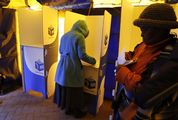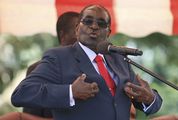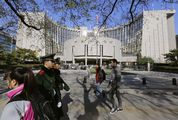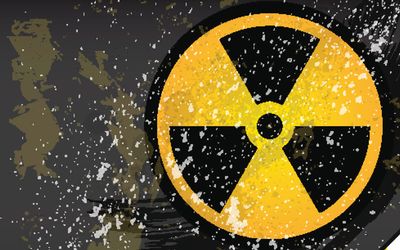WHAT began on the streets of central London in 2006, ended only last week. Alexander Litvinenko, a former Russian Federal Security Service operative turned political exile, was poisoned in a Mayfair bar. It took doctors and academics two weeks to identify the rare radioactive polonium-210 that had been slipped into his tea. But by then it was too late; Litvinenko died 21 days after swallowing the deadly substance.
The initial investigation was intentionally subtle. Terrorists had bombed London the year before, and authorities were alive to the sensitivities of a crime of this magnitude. Tracing Litvinenko’s movements led investigators to two men the former spy was last seen with — Andrey Lugovoy and Dmitry Kovtun — supposedly "friends". Tracing Lugovoy and Kovtun’s movements then led investigators to discover significant radioactive traces in restaurants, streets, a hotel room and a British Airways jet.
At the turn of the millennium, SA had a close relationship with Britain. Thabo Mbeki, an alumnus of Sussex University, was president of SA and some Labour cabinet ministers in the UK — notably Peter Hain — had anti-apartheid credentials. But the warmth soured over Britain’s joint enterprise with the US in the disastrous invasion of Iraq in 2003. Mbeki was deeply offended by then prime minister Tony Blair’s decision to choose Iraqi defector Ahmed Chalabi’s crooked intelligence over his own diplomatic reasoning.
Save for the state visit afforded to President Jacob Zuma in 2010 — as gratitude for his not-so-curious decision to quash a probe into British Aerospace’s participation in the arms deal — the relationship has reached such a low that some British politicians today openly jeer Zuma as an "innumerate warlord".
Mbeki’s fury at being undermined would have undesirable consequences and ultimately see SA siding with rogue states at the United Nations Security Council. The decision to support the likes of Iran and Zanu (PF) awoke dormant antiwestern fantasists in Pretoria.
Convinced that trading with communists — who weren’t actually communists — or a functioning gangster state was better than trading with hypocrites, Mbeki charted a course of ever closer relationships with China and Russia.
The inquiry into Litvinenko’s death concluded that his murder at the hands of Lugovoy and Kovtun was probably sanctioned by the Russian state. Despite no motive being announced, Litvinenko himself claimed he was a target because he knew too much. Of what he claimed to know, the most explosive allegation was this: Vladimir Putin personally ordered the bombing of Moscow apartments in 1999 as a means to justify his invasion of Chechnya that same year. (The bombing of a Russian passenger jet in Egypt last year is the subject of similar theories.)
The influence of the South African Communist Party has increased radically since 2009. Its members can be divided into two categories: those who, like the Chinese, are purely cosmetic communists, and those harbouring romantic Soviet delusions that a country can be built by central committees and industrial warehouses stocking rotting foodstuffs. Today these cadres support Moscow’s hyperactive sentiments through policy documents and inflammatory conspiracies centred on imperialist defiance.
But provincial-thinking comrades are unlikely to understand the extent of the Russian project beyond sabre-rattling.
The legacy of communism in Russia is reflected in the chasm between a prosperous political elite and a submissive peasantry. Putin knows the feeling of shattered nationalism; he was a young KGB official stationed in East Germany among the Stasi when Moscow capitulated. It hurt. Happily for him, many citizens lament the collapse of the union, the reinvention of which is his life’s work. He has ascended to the undisputed heavyweight champion politician of his generation, first by breaking (and taming) Chechnya, then chasing out disobedient oligarchs, then outwitting the US and Britain in Syria.
Adversaries such as Boris Nemtsov and Sergei Magnitsky end up dead, or, if they’re especially unlucky, in a Siberian gulag, like Mikhail Khodorkovsky. As the African National Congress (ANC) has engineered the fallacy that criticism of it, its president or its decisions amount to a hatred of all black people, so has Putin managed to cast all criticism of his administration as being the property of an arrogant western agenda.
It is argued, somewhat convincingly, that Russia was one of the influential dimensions of a few humiliating days in December culminating in the reappointment of Pravin Gordhan. Before he was sacked, then finance minister Nhlanhla Nene had ostensibly pronounced his objections to a nuclear build programme, the majority of which Russia looks set to absorb, on the basis that it amounted to fiscal dementia. This faultline pits those who acknowledge the value of nuclear energy against those who acknowledge the value of having an economy. Nene was of the latter thought.
While the state of the South African economy lends itself to a nonnegotiable cancellation of any nuclear build, it is rumoured that Russia could finance the capital expenditure required, ultimately making South African consumers beholden to the Russian parastatal Rosatom. In Davos last week, Zuma did not mention the build programme in a presentation, probably strategically, but it remains one of the decomposing albatrosses hanging around his neck whenever he dares utter the word "economy".
In summer, I regularly walked the Polonium Trail. This nuclear attack was executed with the sort of brazen impunity that makes it impossible not to consider the involvement of a much larger force. As a result of Litvinenko’s murder and other fears, more than 500 intelligence operatives are reputed to monitor the streets of Mayfair every day. Lugovoy, far from being investigated or charged, has been promoted to deputy of the Russian Duma — the equivalent of SA’s Bruce Koloane, who allegedly permitted the Gupta wedding entourage to land at Waterkloof, was suspended and then appointed ambassador to the Netherlands.
Kovtun denies he was an accessory. The Russian foreign ministry described the inquiry as "politicised" and "opaque".
Factions of the ANC — those who peddle Moscow’s line — are clearly oblivious to the frequency of police brutality in Russia, the racist attacks on African immigrants and the persecution of homosexuals. It is the mutual contempt for the West that acts as the solitary link between the two. Beyond that, this quarter of the ANC does not understand Putin or his project, which he has designed to avenge the loss of the Soviet Union’s place in the world, which he blames on the West.
A closer relationship with Russia via the nuclear build and pursuant associations will yield nothing for ordinary South Africans; they will be reduced to blind, indebted recruits, subjected to further alienation and suspicion. The illusion of so-called imperialist resistance that has been received so well is but one of many ploys employed by Putin. He is intent on something far greater, and SA must avoid becoming an unwitting participant, no matter how tempting the prospect of nuclear energy may be.
• Reader works for an energy investment and political advisory firm





















Change: -0.03%
Change: -0.13%
Change: -0.96%
Change: 0.02%
Change: 0.61%
Data supplied by Profile Data
Change: 0.02%
Change: -0.74%
Change: -0.03%
Change: 0.00%
Change: -0.81%
Data supplied by Profile Data
Change: 0.07%
Change: 0.11%
Change: 0.14%
Change: 0.36%
Change: -0.11%
Data supplied by Profile Data
Change: 0.65%
Change: 0.43%
Change: 0.27%
Change: 2.24%
Change: 0.97%
Data supplied by Profile Data